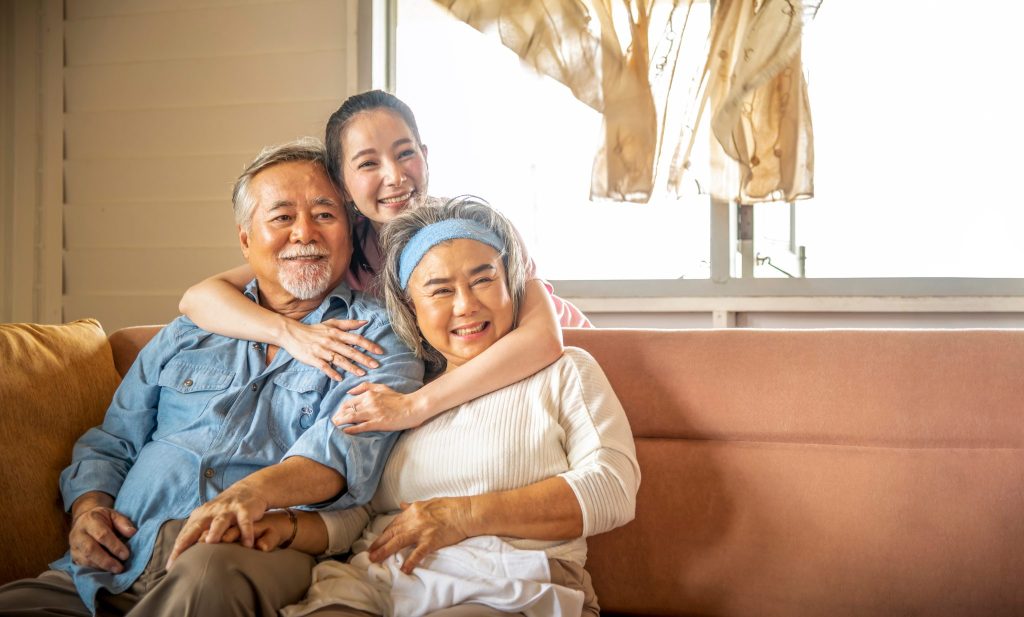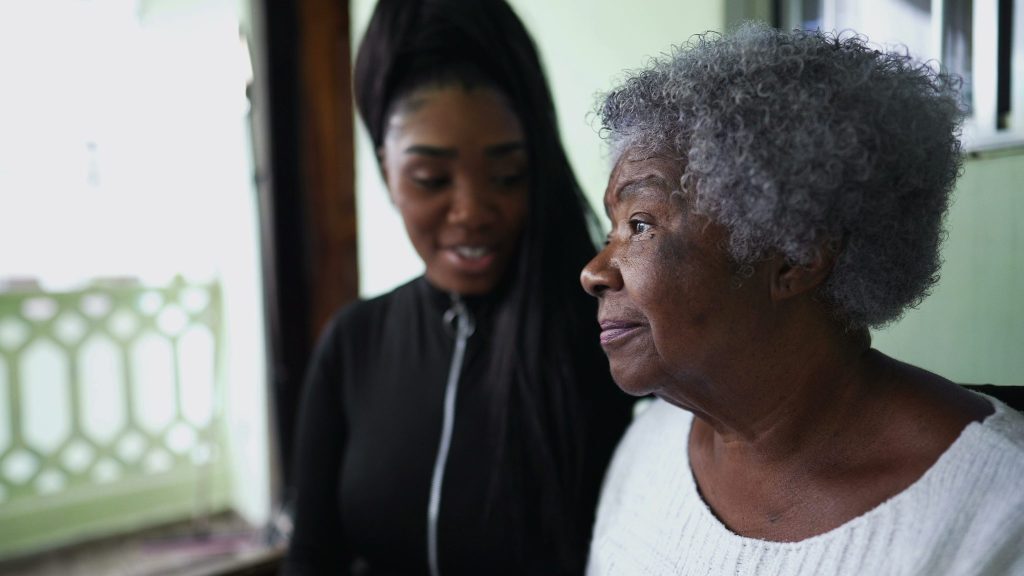Caring for ageing parents can bring a lot of emotions and logistical issues, where traditional roles can be reversed as adult children become primary carers. While this role shift can be rewarding, it also presents emotional and practical challenges.
Fortunately, in Australia, we have various forms of assistance available for those caring for senior parents, both at home and in Aged Care settings.

Financial help available
Managing the financial aspects of caring for elderly parents can be daunting at first, and there is some admin to take care of, but the financial assistance is often worth the effort, because it can give you the extra help you need to provide for your loved one.
The Australian Government offers the following financial assistance to carers:
1. Carer Payment
This means-tested income support payment is for people who spend a significant portion of their time providing constant care to a person with a disability, severe medical condition, or someone who is ‘frail aged.’ You can find full eligibility details and application procedures on the Services Australia website.
2. Carer Allowance
This fortnightly supplement is available to carers who provide additional daily care and attention to individuals with disabilities, medical conditions, or those who are ‘frail aged.’ Unlike the Carer Payment, the Carer Allowance is not means-tested. You can apply for the Carer Allowance here.
3. Carer Supplement
Carers already receiving the Carer Allowance, Carer Payment, or Department of Veterans’ Affairs Carer Service Pension may be eligible for this annual lump-sum payment of up to $600. It aims to reimburse carers for extra costs incurred while providing care. You can learn more about the Carer Supplement here.

Help in the home
Many ageing parents want to stay in the home they’ve known and loved for as long as possible, and there is subsidised practical support for those caring for elderly parents at home.
Home care packages funded by the Australian Government offer a range of services that can be tailored to each person’s needs, including help with daily activities such as bathing, meal preparation, and medication management. These packages can provide a sense of independence and enable elderly parents to continue living in the comfort and familiarity of their own homes.
Depending on your ageing parent’s care needs, you can access services through the Commonwealth Home Support Programme or a Home Care Package. You can apply for an assessment, which will help determine which level of care is more suitable.
The Australian Government subsidises the cost of home support services. The amount your parent is asked to pay depends on the services they access and, in some cases, their financial situation.
You can see a full list of services, find out what assistance is available, and learn more about assessments on the My Aged Care website.
Non-government, non-financial help
Beyond government services, various community care services provide practical assistance such as domestic help, transportation to medical appointments, and social outings. These services not only alleviate the burden placed on caregivers, they also enhance the quality of life for ageing parents by keeping them active and engaged within their communities.
With almost half (45%) of Australians over the age of 65 reporting that they feel lonely, these services can be incredibly valuable in managing mental health and wellbeing, with flow-on effects into physical health as well.
Another way to help alleviate loneliness is to consider Respite or Permanent Aged Care.

Respite Care
If you’re caring for elderly parents, you know how emotionally and physically demanding it can be. These feelings are normal and natural, and it’s important as a carer to prioritise your own wellbeing to avoid feeling burnt out.
Respite Care services can give you some temporary relief by providing short-term care for ageing parents, so you to take a break and attend to your own needs – whether that’s caring for your immediate family, going on a holiday to recharge your batteries, or just taking time to do things that help you to feel good.
Respite Care can be offered in the home, where a qualified caregiver visits your loved one to provide care, or in an Aged Care Residence, where your parent stays for a short period, with the social bonus of meeting new people, and also having 24/7 medical care if they need it.
Another benefit of Respite Care is that it can provide a ‘try-before-you-buy’ approach to Permanent Aged Care. It’s a way to try it out and see if the residence is a good fit and, if not, to try others.
Permanent Aged Care
When the level of care your loved one requires becomes too demanding for you to manage, Permanent Aged Care may become necessary.
TriCare’s Aged Care Residences all have their own dedicated team of Registered Nurses, qualified Carers, Lifestyle Coordinators and a professional Chef – expertly managed by our Facility and Clinical Managers.
They offer a range of services, from low care to complex needs, including Palliative and secure Dementia Care. Residents receive comprehensive support, including medical, therapeutic, and lifestyle services, in a safe and homelike environment. They are designed to help residents feel at home, enjoy their hobbies, and be as independent as possible.
Residents also have access to physiotherapy, podiatry, diversional, occupational speech therapies, GP, and other services like dietary, beauty, and wellness to feel and look their best.
Navigating the transition to Permanent Aged Care can be challenging, both emotionally and logistically, but TriCare Aged Care experts are available to help talk you through the process, including arranging an ACAT assessment, and answer any questions you may have.
You can speak directly with an Aged Care Specialist by calling 1300 874 2273.






